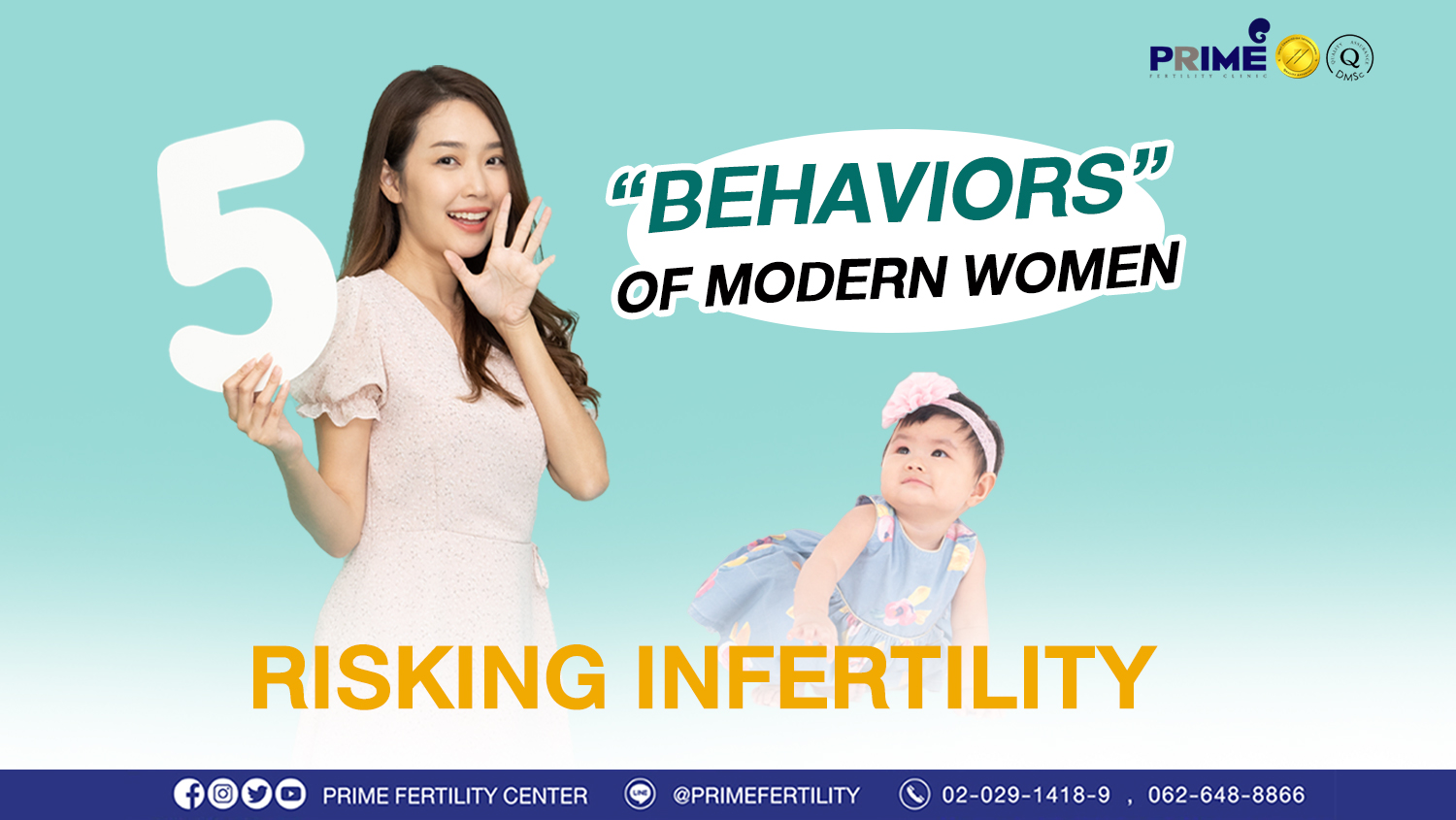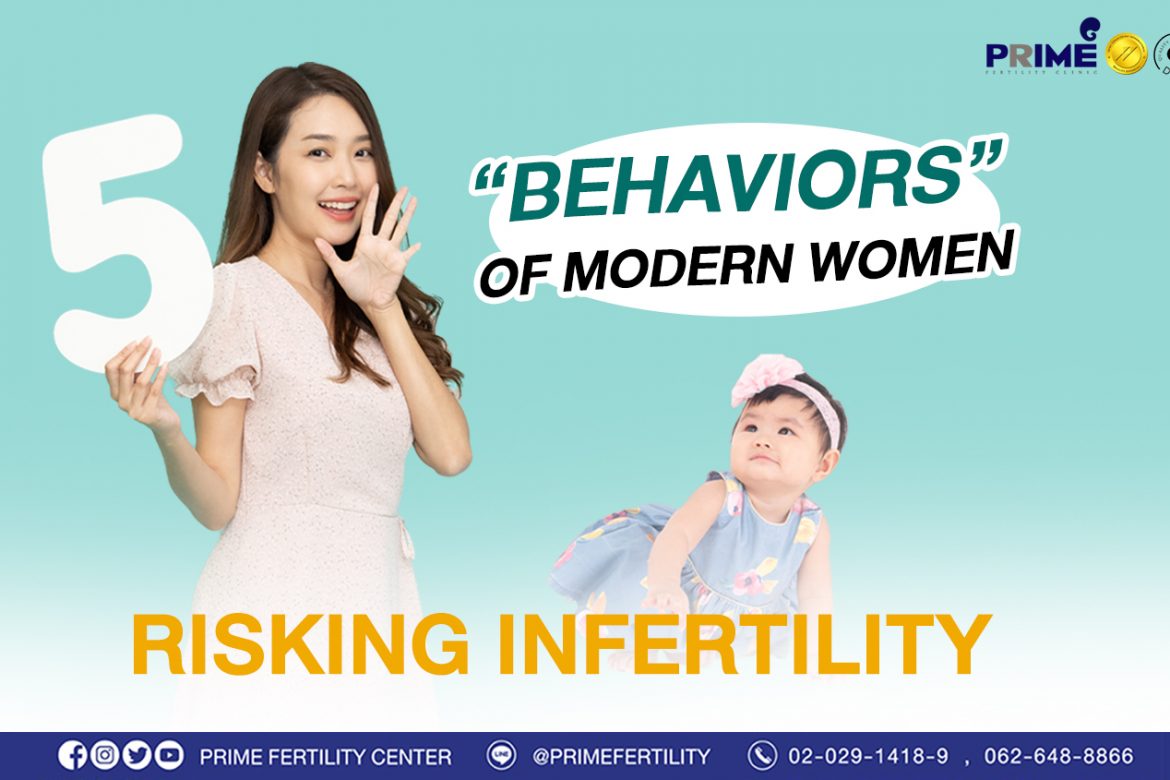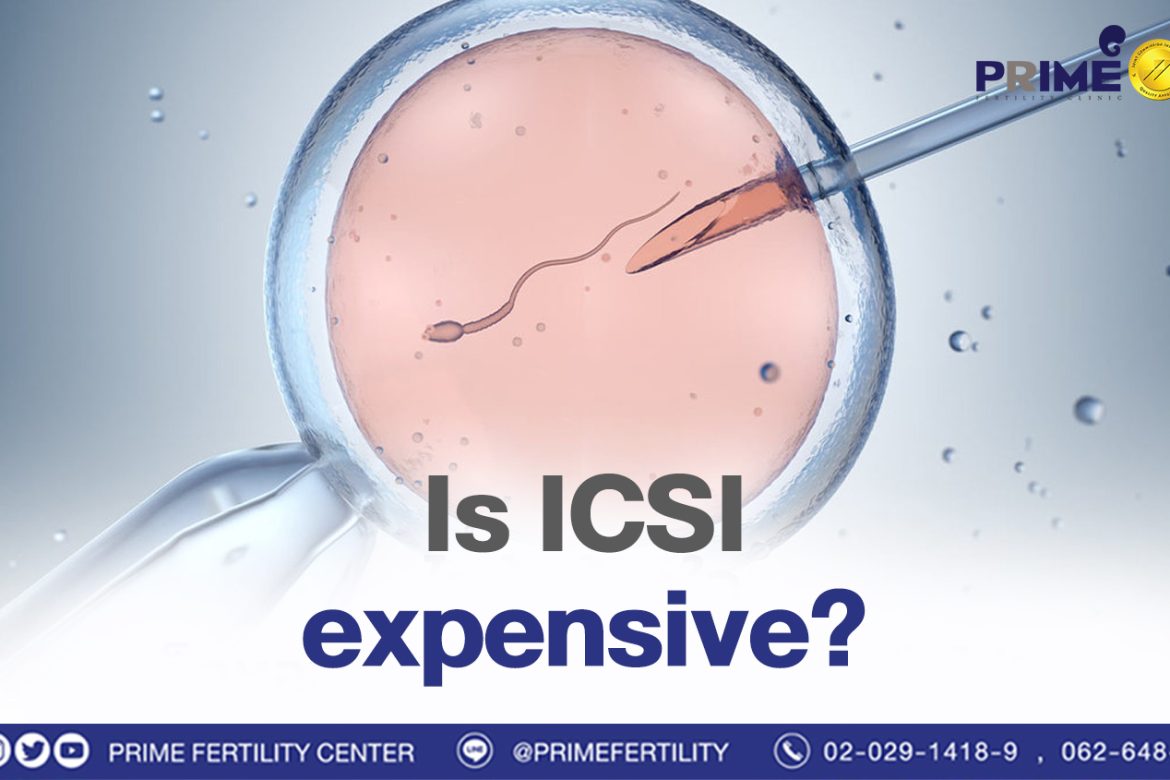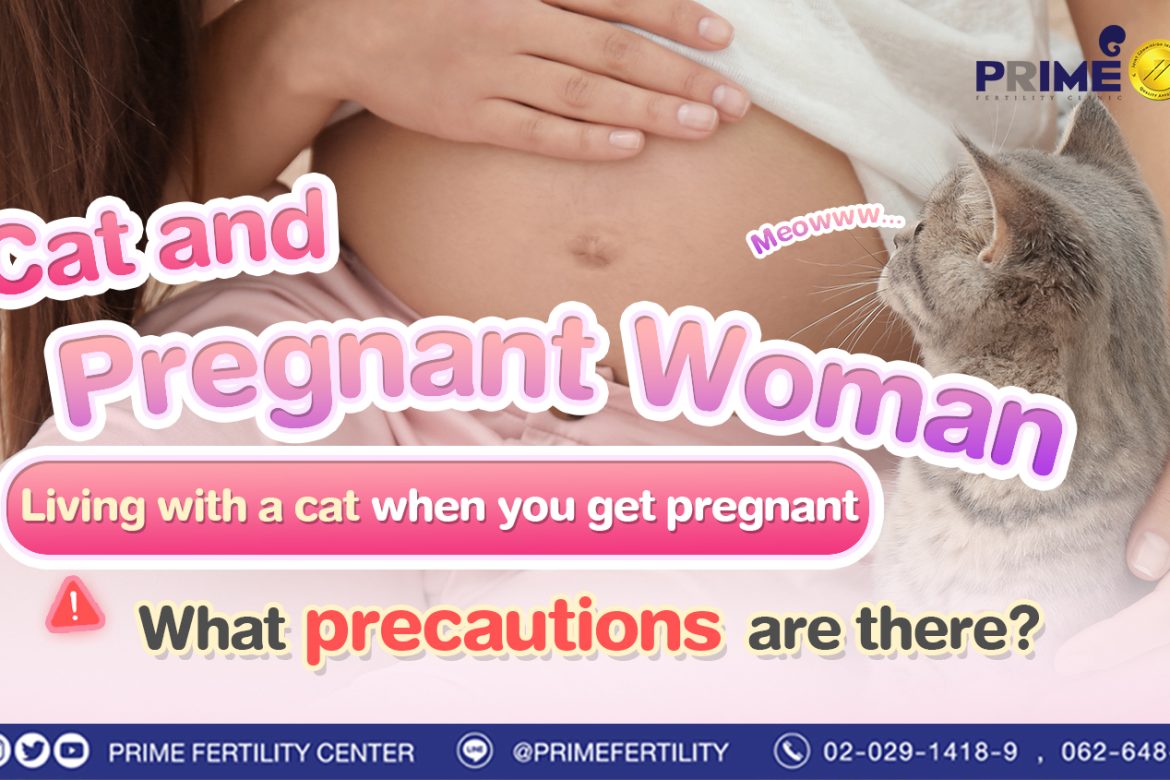When the time changes, everything also changes. These things turn most women into living an extreme life without knowing that these behaviors can increase the chance of infertility in the future. What are the behaviors? Let’s see.


1. Drink too much alcohol
When girls live their extreme lives, their bodies will consume too much alcohol (The alcohol limit should not be more than 120 ml. a day) Soda, tea, and coffee are included. Do not drink too much.

2. Eat unhealthy food
Eating the same menu every day, especially junk food for too long makes the body not receive enough nutrition and eventually causes infertility.
It is best to eat 5 food groups and regularly take supplements

3. Remain overweight
Weight fluctuation is not good for the body. It reduces reproductive capacity and increases the risk of miscarriage.
The suggestion is to regularly exercise and control weight to remain healthy.

4. Stress from other things
Stress from work, home, and other problems not only affect mental health but also affects fertility. It can cause anovulation and harden embryo implantation.
It is recommended to let go of stress, and be optimistic and cheerful.

5. Excessive chemical exposure
Excessive chemical exposure can come from cosmetics or inhaling chemicals like lead. The chemical accumulation in the body can cause irregular ovarian and sex cell functions.
Avoid chemicals and find prevention if possible.
It is obvious that bad behaviors in daily life can lead to infertility. However, a good start and preparation are needed for girls before it is too late.
–
Reference: Prime Fertility Center Co., Ltd.
If you’re interested in our ICSI program, kindly find more details as below website: https://www.primefertilitycenter.com/en/package-promotion-2/icsi-package/
—————————————————————–
ICSI (Intracytoplasmic Sperm Injection)
ICSI (Intracytoplasmic Sperm Injection) is an in vitro fertilization procedure with the laboratory technology. Both IVF and ICSI are comprising of similar procedures. But the difference is how sperm will fertilize an egg. In ICSI program, only one best sperm cell will be selected then injected directly into a fully matured egg. Patients will be prescribed some hormonal medications. Stimulating ovaries to produce several eggs. ICSI can make a pleasant fertilization rate. As well as reduces some fertilization problems or abnormalities caused from egg and sperm. For examples: multiple sperm fertilize an egg, sperm cannot penetrate the egg. The combined egg will transform to be an embryo after fertilization. Next, the embryo will be raised and will grow up among the appropriate environment inside a laboratory. Finally, the embryo will be transferred to the uterine cavity in order to implant then develop to be the fetus later on.
Couples who should receive the infertility treatment with ICSI program:
- Female’s age more than 35 years
- Stenosis for both sides of the fallopian tube
- Severe Endometriosis
- Ovarian hormone dysfunction for examples: Chronic Anovulation, PCOS (Polycystic Ovary Syndrome)
- Severe sperm abnormalities including sperm morphology, sperm count, sperm motility
- Male who is sterile or had a vasectomy but the body can still produce sperm. To extract sperm under this limitation, a surgical procedure will be performed such as PESA, TESA, TESE.
- Couples who have failed from previous IVF cycle
- Couples who prefer to screen the embryo’s genetic diseases
Frozen Embryo Transfer (FET)
Frozen Embryo Transfer (FET) is the process of embryo transplantation into the uterus after thawing frozen embryo. The patient can choose the FET date by convenient time e.g., 1-2 months after the fertilization process. The evidence supports FET in women more than 35 years of age are providing more pregnancy rates than FRESH embryo transfer.
Due to the inducing medication that the female takes to develop multiple of healthy ovum, the huge amount of hormones generated will weaken endometrium, consequently lessening the success rate of the transfer regardless of the perfect condition of embryos. Given the circumstance, the embryo transfer right away after ovum retrieval (FRESH transfer) may not be an effective protocol.
Moreover, a number of studies from various institutes found that FET offers better and higher chance of pregnancy than the FRESH transfer because endometrial tissue is in more proper state for embryos. Therefore, the doctor will consider which protocol fits best for each couple individually.



